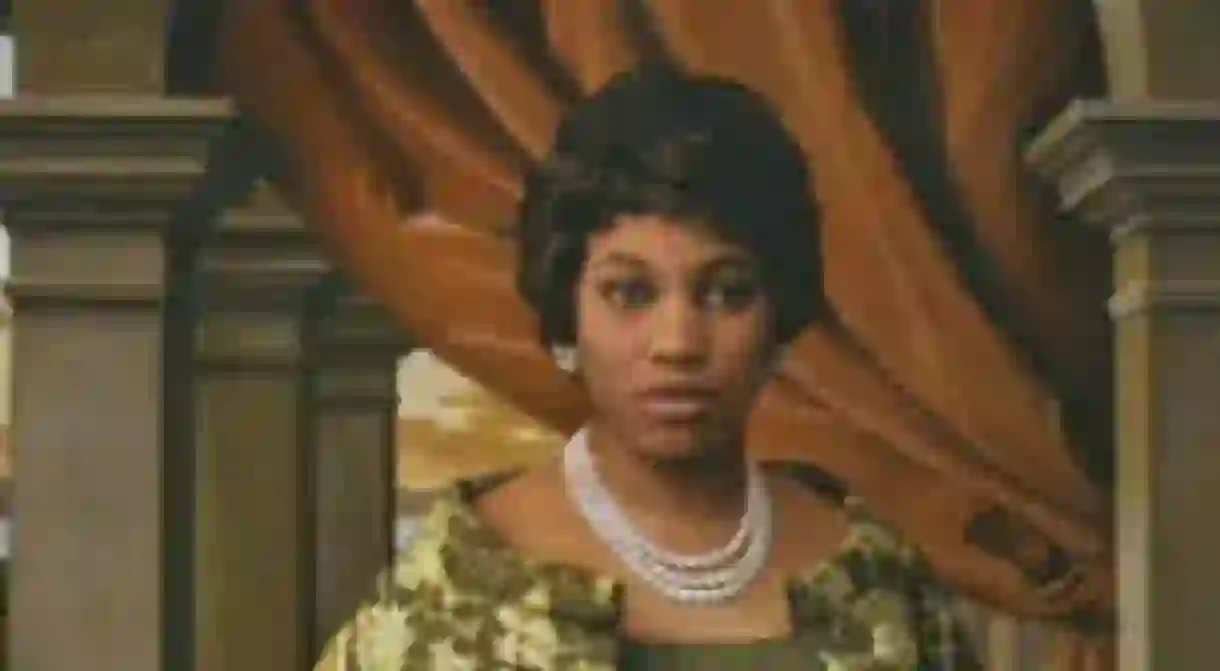Leontyne Price: Icon of Strength and Beauty

Leontyne Price rose to success as an opera vocalist during the civil rights battles of the 1960s. As an African American born and raised in the deep South of the United States, Price fought hard to achieve success, resisting heavy opposition which sought to remove her from the stage. She became one of the first African American singers to take a leading role in the Metropolitan Opera and continues to be recognised as one of the great sopranos of the 20th century.

Lyric Soprano Leontyne Price rose to prominence in the 1950s and 60s, breaking glass ceilings for aspiring African-American singers everywhere. Landing the leading role in Puccini’s Tosca in 1955, she was set to be the first black singer to claim a star role in a televised opera. However, Price faced an outraged backlash from producers who cancelled the broadcast in protest. Battling on, the soprano landed another role a year later, singing recitals from Salome with the Berlin Philharmonic Orchestra, and touring the U.S., India and Australia. Price then went on to perform various leading roles across Europe and America, and recorded soundtracks for Tosca, Don Giovanni and Carmen. The singer was first offered a secondary role at the Metropolitan Opera in 1958 but, upon the advice of friends, turned it down. It is claimed that Peter Herman Adler, the director of NBC Opera at the time, said of the offer ‘Leontyne is to be a great artist. When she makes her debut at the Met, she must do it as a lady, not as a slave’. This pinnacle role came to her three years later when, in 1961, she made a collaborative debut with tenor singer Franco Corelli, performing II Trovatore. It was this show that made Leontyne a star, one of the first ever African-American sopranos to sing as a lead for the Metropolitan Opera.

Even today Price’s soaring vocals hold a regality that all soprano singers dream to achieve, but often fail to reach with such relative ease. The tone in her voice is at once alluring and smooth, demonstrating an infinite depth. Her unique delivery and sense of novelty can likely be accredited to her upbringing in Laurel, Mississippi, a humble beginning at a time when racial segregation was only just starting to meet strong opposition. She has said of her childhood that despite pervading doubt that a woman such as herself should be able to go to college, her parents made it their absolute focus that she be able to do so. The Deep Southern tones of Price’s Mississippi dialect seem a far cry from the gleaming soprano high notes that left her audiences dazzled time and again, but it is this true and honest background that allows her to maintain her reputation as an icon of strength and beauty. In the decades following her near debut in 1955, her voice has transcended all barriers of race, class and expectation.
It is not, however, her singing alone that keeps audiences transfixed; Price commands the stage with her stoic, unfaltering stance. The burning expression of her eyes seems to guide the direction of the notes that she belts out to the crowd, seeming so unreachable but ever so controlled. She is an enigma, a queen of fierce fortitude, and yet she displays a delicate, fragile beauty.
Price is said to have gained much of her initial inspiration from contralto singer Marian Anderson, also African-American, whom Price saw sing on stage in Jackson as a child. Stating in an interview with NEA Opera Honors, ‘I knew instinctively when this regal lady artist came out of the wings, I wanted some day to walk like that, to stand like that, and – hopefully – maybe even sound somewhere near that. It was an essence, it was a combination of everything that inspired me, I think, to this moment. The dignity of her’.
Dignity is a key term when describing Leontyne Price – the unstoppable woman, always self-contained, her ability to express deep, searing pain as seen in the scene of Scarpia’s Murder in Tosca. In her performances she has shown rage, passion and love. Her voice relays an entire range of emotion in every note. Other African-American operatic singers have surpassed the level of fame that Price reached, but it is her firm grasp of absolute dignity, never faltering, never stopping, never taking no for an answer that make her a legend. Her talent, her class, her timeless style; she is truly a master of her sound, despite all resistance.













